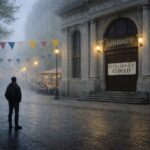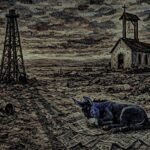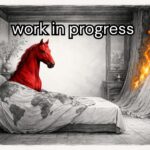The former President of the Philippines, Rodrigo Duterte, was arrested on March 11 this year and flown to The Hague, charged with crimes against humanity. The arrest can be seen as a goodwill gesture toward the West by the current President, Ferdinand Marcos Jr., as well as a strategic attempt to align Philippine politics more closely with his vision. Still, the recent senatorial elections strengthened the Duterte camp. The former President himself was elected mayor of Davao once again by an overwhelming majority, with his son Baste as his Vice Mayor.
His daughter, Sara, who currently serves as vice president and is facing impeachment over allegations of corruption and threats against Marcos, may evade prosecution in light of the new power dynamics and could, therefore, run for President in 2028. Alliances shift quickly, and Philippine politics seem to have elements of the telenovelas that dominate the country’s TV landscape. It will be interesting to see what happens next. But enough of that.
My purpose here is to give a personal impression of Rodrigo Duterte, whom I first heard about during a visit to Mindanao in May 1992. At that time, he had already served as mayor of Davao, the largest city on the island, for four years. When he assumed office in 1988, the city was plagued by chaos and fear. It had the highest murder rate in the country and was infamous for lawlessness and violence. Duterte promised to restore order and initiated dialogue with both communist guerrillas and Muslim leaders to transform Davao into a zone of peace, while warning criminals that they would be fed to the crocodiles.

Under Duterte’s leadership, Davao was transformed from a violent, crisis-ridden city into one of the safest in Asia. At the time, death squads were operating in several Southeast Asian cities, including Davao. This was a reality he had to face. One of the central questions now before the International Criminal Court in The Hague is whether he encouraged or allowed the Davao death squad to operate with tacit approval. Lawyers in a well-functioning Western legal system have a different framework and approach to the law than a street-smart lawyer navigating the lawless conditions of the developing world. Duterte chose the latter path, earning the “vigilante” label that has followed him since his early days as mayor. Foreign journalists compared him to Dirty Harry, and images of the armed mayor riding a big motorcycle circulated the globe. People admired him for his uncompromising war on drugs, his down-to-earth demeanor, and his social engagement. He even drove a taxi at night to give exhausted night workers and students free rides home and to take the pulse of his city firsthand.
His popularity in Davao paved the way for the presidency in 2016. By then, the Philippines had undergone significant political shifts. During my visit in May 1992, Fidel V. Ramos was elected President after Corazon Aquino, who had led the country since 1986. She came to power after the People Power Revolution that overthrew the dictator Ferdinand Marcos, the father of the current President. She was the Philippines’ first female President and played a central role in restoring democracy after the Marcos regime. Ramos had been a key supporter during this transition, particularly as military leader and chief of defense. He would later become an important behind-the-scenes supporter of Duterte’s rise to national power, something I wrote about in my 2014 article, The Shadow of an Eagle.
As President, Duterte continued his hardline style, especially on the war on drugs, which resulted in alleged high death tolls and widespread international criticism. For many, he was the savior no one else dared to be. For mothers who lost their sons, he became a source of despair. At the same time, he worked to bring peace to Mindanao. He collaborated with Muslim groups to ease the long-standing conflict in the southwest. He shunned lavish presidential traditions: flew economy class, served local food at state receptions in the presidential palace, and maintained his rough manner known for coarse language directed at the UN, the Pope, and Western leaders, and for his efforts to make Philippine foreign policy more independent by turning also toward Russia and China. My wife, Grace, interviewed me in September 2016 about my impressions of Duterte when he was newly elected, and that interview can be read here.
Now he is detained in The Hague, accused of crimes against humanity. Judges and investigators are examining whether what he called necessary actions were, in fact, extrajudicial killings. Legally, he stands on shaky ground. The international justice system is based on the principle of equality before the law—drug traffickers and presidents alike. The likelihood of conviction is present. However, unlike the lawyers in The Hague, Duterte did not have a trustworthy legal system to rely on when he took action in Davao. He acted on instinct, for his people, and must now answer for it.
Still, he appears to have come to terms with the situation. He has reportedly said that the healthcare he receives in The Hague is excellent and that he has already taken a liking to the nurses. That glint of humor and the ability to make the best of any situation are part of a personality forged over decades of constant struggle for his people.
Rodrigo Duterte remains one of the most popular figures in modern Philippine history. He is a hero for many—a leader who did what no one else dared. His influence remains strong in a country where the yearning for order and decisive leadership often outweighs trust in institutions.
Featured image: Cropped version of official portrait, 2016






